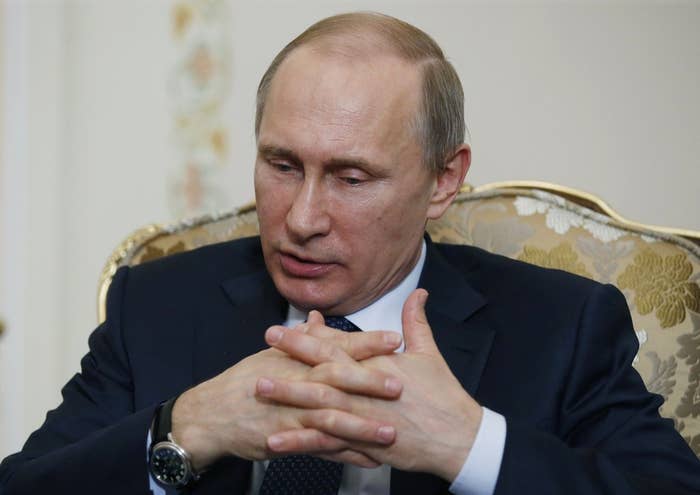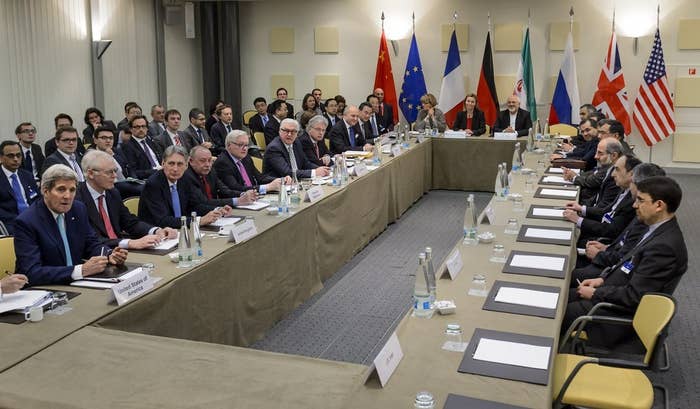The Russian government has lifted a ban on the delivery of air defence missiles to Iran, Kremlin officials said Monday.

The ban was put in place by Vladimir Putin's predecessor, Dmitri Medvedev, in 2010.
A statement on the Kremlin's official website reads:
"The decree lifts the ban on transporting S-300 surface-to-air missile systems through the territory of the Russian Federation (including by air) or moving them from the territory of the Russian Federation to the Islamic Republic of Iran, in addition to transferring them to the Islamic Republic of Iran outside the territory of Russia with the use of air and sea vessels flying the State Flag of the Russian Federation."
The announcement is part of an oil-for-goods agreement between Moscow and Tehran, Reuters reported. In exchange for equipment and other supplies, Tehran will provide Russia with an estimated 500,000 barrels of oil per day.
"I wanted to draw your attention to the rolling out of the oil-for-goods deal, which is on a very significant scale," Deputy Foreign Minister Sergei Ryabkov said during a session at the upper house of parliament, Reuters reported.
Iranian officials have not officially reacted to the lifting of the missiles embargo so far, but Rybakov said Monday that the deal will benefit both countries and that no rules are being broken.
"In exchange for Iranian crude oil supplies, we are delivering certain products. This is not banned or limited under the current sanctions regime," he said.
In spite of Russian assurances, the deal drew some concern from Washington.
"We don't believe it's constructive at this time for Russia to move forward with this, but we've worked very closely with the Russians on the P5+1 negotiations. We don't think this will have an impact on unity in terms of inside the negotiating room," State Department spokeswoman Marie Harf said at a news conference on Monday.
In a statement to BuzzFeed News, Israeli Intelligence Minister Yuval Steinitz was highly critical of Iran's latest move.
"This is the direct result of the legitimacy that Iran is receiving from the nuclear deal being made with it. This also proves that the economic momentum in Iran that will come in the wake of the lifting of the sanctions will be exploited for armaments and not used for the welfare of the Iranian people," he said.
The arms agreement between Moscow and Tehran comes more than a week after world powers and Iran agreed on the parameters for a final nuclear deal.

In protracted talks with the U.S., France, Germany, Britain, China and Russia in the Swiss town of Lausanne, Iranian officials agreed, in principle, to curb the creation of nuclear material in exchange for a lifting of Western sanctions, which have hampered the growth of the country's economy.
Russia is dealing with its own set of sanctions, imposed by Washington and its allies more than a year ago, over the Kremlin's role in the war in eastern Ukraine.
